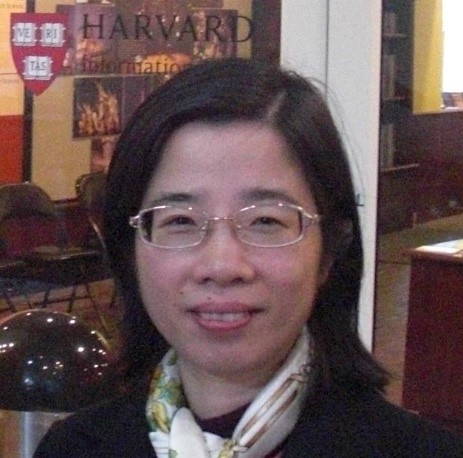
The 10th Workshop of Knowledge Management & E-Learning (Part I)
Theme: The Future of Online Learning: Challenges, Opportunities, and Creativity
1. Fueling a Cycle for Continuous Improvement in Discussion Based Learning
Prof. Carolyn Ros¨¦ (ISLS Fellow),
Professor, School of Computer Science, Carnegie Mellon University
May 23 (Wed), 2018, 14:00-16:00, Room 318, Yingdong Building, Beijing Normal University, China
2. Laboratory for Knowledge Management & E-Learning (KM&EL Lab):
Review of Ten Years and Prospect of Development
Dr. Minhong (Maggie) Wang
Associate Professor, Director of the KM&EL Lab, Faculty of Education, The University of Hong Kong
May 24 (Thu), 2018, 10:00-12:00, Room 318, Yingdong Building, Beijing Normal University, China
3. Ensuring Learning Online is not a Second Class University Education
Prof. Gregor Kennedy
Professor, Pro Vice-Chancellor (Teaching & Learning),
Director of the Melbourne Centre for the Study of Higher Education, University of Melbourne
May 24 (Thu), 2018, 14:00-16:00, Room 318, Yingdong Building, Beijing Normal University, China

Fueling a Cycle for Continuous Improvement in Discussion Based Learning
Abstract: Computational Discourse Analysis is an active area of Learning Analytics that offers real time insights into social processes that impact learning and performance in online courses. This talk reports both on a sharable infrastructure for supporting computational discourse analysis in action as well as research that leverages this infrastructure in a continuous improvement cycle. With DiscourseDB as a foundation, we use text mining and other computational modeling techniques applied to discourse data, which allows us to estimate measures of student conversational roles, attitudes, motivation, cognitive engagement, and confusion. Together these insights motivate design of collaborative activities and interventions triggered through real time analysis of collaborative processes, which then scaffold collaborative processes and increase learning and performance within groups. Examples will be offered from a series of studies in Massive Open Online Courses as well as more traditional large online courses housed within degree programs.
Bio: Dr. Carolyn Ros¨¦ is a Professor of Language Technologies and Human-Computer Interaction in the School of Computer Science at Carnegie Mellon University. Her research program is focused on better understanding the social and pragmatic nature of conversation, and using this understanding to build computational systems that can improve the efficacy of conversation between people, and between people and computers. Her group¡¯s highly interdisciplinary work, published in over 200 peer reviewed publications, is represented in the top venues in 5 fields: namely, Language Technologies, Learning Sciences, Cognitive Science, Educational Technology, and Human-Computer Interaction, with awards in 3 of these fields. She is a past president and fellow of the International Society of the Learning Sciences and serves on the Executive Board of the International Artificial Intelligence in Education Society. She serves as Executive Editor of the International Journal of Computer Supported Collaborative Learning and Associate Editor of the IEEE Transactions on Learning Technologies.

Laboratory for Knowledge Management & E-Learning (KM&EL Lab): Review of Ten Years and Prospect of Development
Abstract: The KM&EL Lab at the Faculty of Education of HKU is dedicated to promoting high-quality research and international collaboration in the areas of knowledge management and e-learning. The lab has been running an international academic journal¡ªKnowledge Management & E-Learning, which is indexed in ESCI and Scopus. The lab has led a number of research projects funded by the Research Grants Council of Hong Kong and has been collaborating with world-class institutions such as Harvard University, University of Cambridge, and Beijing Normal University. With the support from its faculty, university and collaborators, the lab has held the annual KM&EL workshop since 2009. More than 50 world-renowned scholars have delivered keynotes and shared their cutting-edge research and findings at the workshop. In this talk, I will discuss the research projects, international collaboration, and the academic journal developed at the lab in the past years, in addition to directions for future development.
Bio: Dr. Maggie Minhong Wang is associate professor and director of the Laboratory for Knowledge Management & E-Learning at the University of Hong Kong. She is Eastern Scholar Chair Professor at East China Normal University. She holds a Visiting Research Professor position at the Beijing Advanced Innovation Center for Future Education, Beijing Normal University. Her areas of expertise include e-learning design and analysis, problem solving and inquiry learning, knowledge visualization for deeper learning, STEM and medical education, knowledge management, workplace e-learning, artificial intelligence, and business process management. She has published widely in these areas. She is editor-in-chief of Knowledge Management & E-Learning (indexed in ESCI) and associate editor of Information & Management, in addition to guest-editor of Educational Technology & Society, and Computers in Human Behavior. She is a former visiting scholar at Harvard Graduate School of Education, University of Cambridge, and MIT Sloan School of Management. More details can be found at http://web.edu.hku.hk/staff/academic/magwang.?

Ensuring Learning Online is not a Second Class University Education
Abstract: Over the last two decades there have been widespread changes in the provision of higher education, and educators have witnessed significant shifts in the ways students engage with universities and their teaching programs. The rise of digital technologies and online learning has been central to the way in which universities now engage with their students. Yet online learning faces a stigma in many quarters; it is often seen as inferior to learning face-to-face and is sometimes perceived as a second class university education. In this presentation I will briefly review the evidence about this claim before outlining what I consider the core design features that need to be considered in the development and delivery of high quality online learning environments. I will argue that as educators we need to be more mindful of how and when we apply digital technologies for what purpose in order to ensure learning online is regarded as a first class university education.
Bio: Gregor Kennedy is the Pro Vice-Chancellor (Teaching & Learning) at the University of Melbourne and also the Director of the Melbourne Centre for the Study of Higher Education. In his PVC role Gregor leads the University's strategy in teaching, learning and assessment, curriculum innovation, educational technologies, learning analytics, and the use of physical and virtual space. Gregor has spent over 20 years conducting and overseeing research and development in educational technology in higher education and leads the educational technology research group within the MCSHE. His current research interests include students¡¯ motivation and self-regulation; interaction and engagement in digital learning environments; understanding student confusion in digital learning environments, the use of 3D immersive simulation for learning; and the use of learning analytics for improved learning design, teaching and student support. Gregor has published widely in these areas, and is a past editor the Australasian Journal of Educational Technology and serves on a number of editorial boards. He is a regular invited and keynote speaker at national and international conferences on educational technology and higher education.